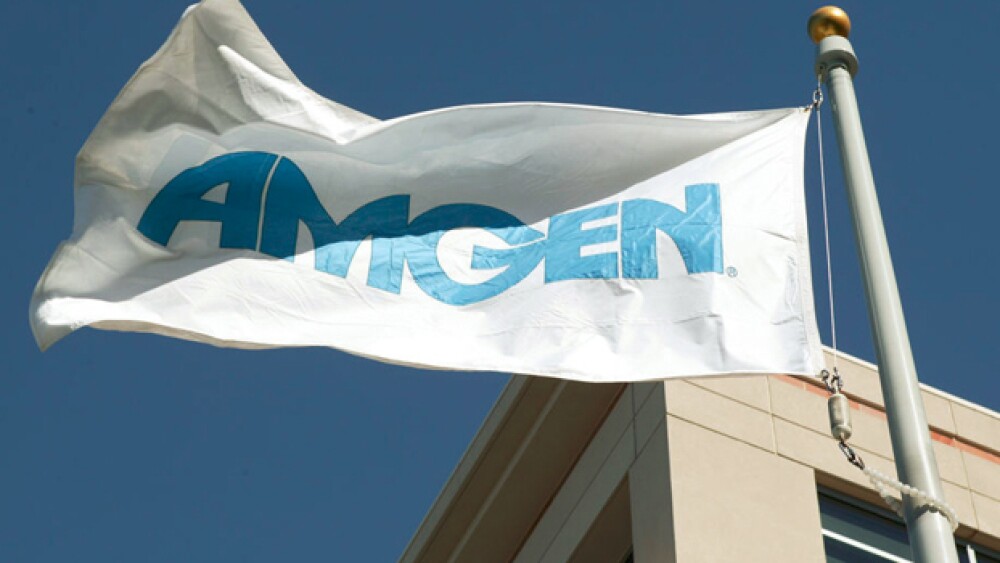At the 60th American Society of Hematology (ASH) Annual Meeting & Exposition, Amgen released the first clinical data from two separate Phase I clinical trials of novel BiTE immunotherapies.
At the 60th American Society of Hematology Annual Meeting & Exposition, Amgen released the first clinical data from two separate Phase I clinical trials of novel BiTE immunotherapies.
BiTE stands for Bispecific T cell engager, which is an antibody construct pioneered by Amgen. They are protein molecules designed to kill cancer cells using the patient’s own immune system by bridging T cells to tumor cells.
Current immuno-oncology approaches require taking blood from the cancer patient, processing their white cells and re-engineering them to attack their specific cancer. They are then reinfused into the patient, where they grow and attack the cancer. BiTE is a more “off-the-shelf” approach to immuno-oncology.
The company released results from two Phase I dose escalation trials for AMG 420 and AMG 330. AMG 420 targets B-cell maturation antigen (BCMA) and AMG 330 targets CD33. The trials showed early evidence of tolerability and anti-tumor activity in patients with relapsed and/or refractory multiple myeloma and relapsed or refractory acute myeloid leukemia (AML), respectively.
For the AMG 420 trial in multiple myeloma, the company released data on 42 patients with r/r multiple myeloma who had progressed after at least two previous lines of treatment. They received AMG 420 at different doses. In 13 patients, the drug caused clinical responses, including complete responses (CR) in seven patients. Four patients who received 400 mg/d hit minimal residual disease (MRD) negative complete responses, which means no cancer cells were detectable in the bone marrow. The objective response rate at that dose was 70 percent, with six patients still responding up to 7.5 months.
Two patients died during the course of the study, but the adverse events that caused their deaths were not believed to be related to the treatment.
“These first-in-human data of a BCMA-targeting BiTE immunotherapy showed encouraging evidence of AMG 420 activity, with no major toxicities up to the 400 mg/d dose in patients with relapsed and/or refractory multiple myeloma who received a median of four prior therapies,” stated Max S. Topp, professor, Hospital of Wuerzburg, Germany, and AMG 420 clinical study investigator.
In the AMG 330 study, 40 patients with r/r AML were enrolled to receive the BiTE therapeutic in 12 dose cohorts. Two patients in the trial had a complete response (CR) at the 240 mg/d dose and two patients hit a CR with incomplete blood count recovery. The complete responses weren’t sustained beyond one treatment cycle.
Amgen indicates that the majority of patients discontinued treatment for disease progression. Reasons stated were adverse events and patient request. Serious adverse events were observed in 73 percent of patients. The most common series AEs in more than one patient included cytokine release syndrome (CRS), a potentially life-threatening response often seen in immuno-oncology treatments, but for which most approved therapies have developed approaches to avoiding.
Two patients died during the course of the trial but were not believed treatment-related. One died from AML progression and one from intracranial hemorrhage, neither of which were treatment-related.
“The majority of adult AML patients will not be cured with standard chemotherapy, underscoring the need for innovative treatment options for those who have relapsed or are refractory to currently available treatments,” stated Farhad Ravandi, Janiece and Stephen A. Lasher professor of medicine and chief of section of Developmental Therapeutics in the Department of Leukemia at the University of Texas – MD Anderson Cancer Center and AMG 330 clinical study investigator. “These early data are encouraging as they indicate AMG 330 may have anti-leukemic activity in heavily pretreated patients with relapsed or refractory AML, validating the need for continued evaluation of the BiTE platform in targeting CD33.”





